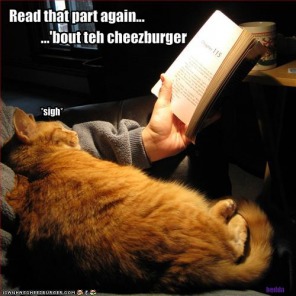Slang + Social Networking Sites + Webcomics = Learning?

What do Lolcats, social networking sites, slang, and webcomics have in common? They all are part of an explosion of internet-based popular media, and it's our job to figure out how teachers can purposefully incorporate these different forms of media into English classrooms to improve student literacy. We have a lot of questions we're here to answer. Join us!
Slang
As new words from popular culture media are absorbed into mainstream discourse, to what extent is the divide between slang and standard (or academic) English widened? How does media language affect the texts that the American public consume, especially given the immediacy of publication that technology makes possible?
Webcomics
What are Webcomics? Is that like the Doonesbury I read online every morning? How are students using them now and how can teachers incorporate this word-art form to motivate them? And what about political webcomics? Can they be used to motivate political discourse in our classroom?
Facebook Me!
How do on-line social networks affect the ways we communicate with, each other? How can we incorporate those networks into our classrooms and, in doing so, what would their instructional purposes be? If we use these networks, are we invading students' privacy exposing them to risks? How can we respectfully and safely talk to students where they already are talking to each other?
Slang
As new words from popular culture media are absorbed into mainstream discourse, to what extent is the divide between slang and standard (or academic) English widened? How does media language affect the texts that the American public consume, especially given the immediacy of publication that technology makes possible?
Webcomics
What are Webcomics? Is that like the Doonesbury I read online every morning? How are students using them now and how can teachers incorporate this word-art form to motivate them? And what about political webcomics? Can they be used to motivate political discourse in our classroom?
Facebook Me!
How do on-line social networks affect the ways we communicate with, each other? How can we incorporate those networks into our classrooms and, in doing so, what would their instructional purposes be? If we use these networks, are we invading students' privacy exposing them to risks? How can we respectfully and safely talk to students where they already are talking to each other?
Find out more about the authors here!
